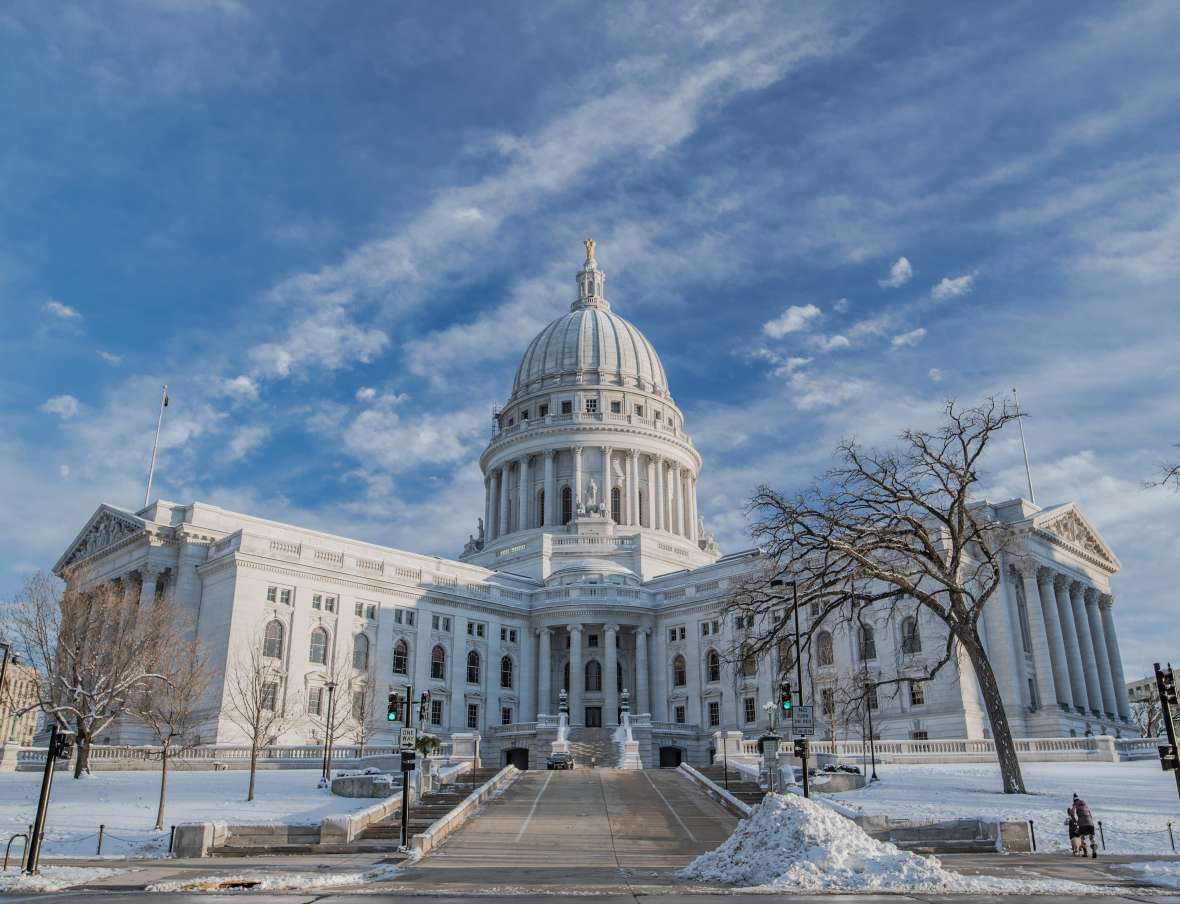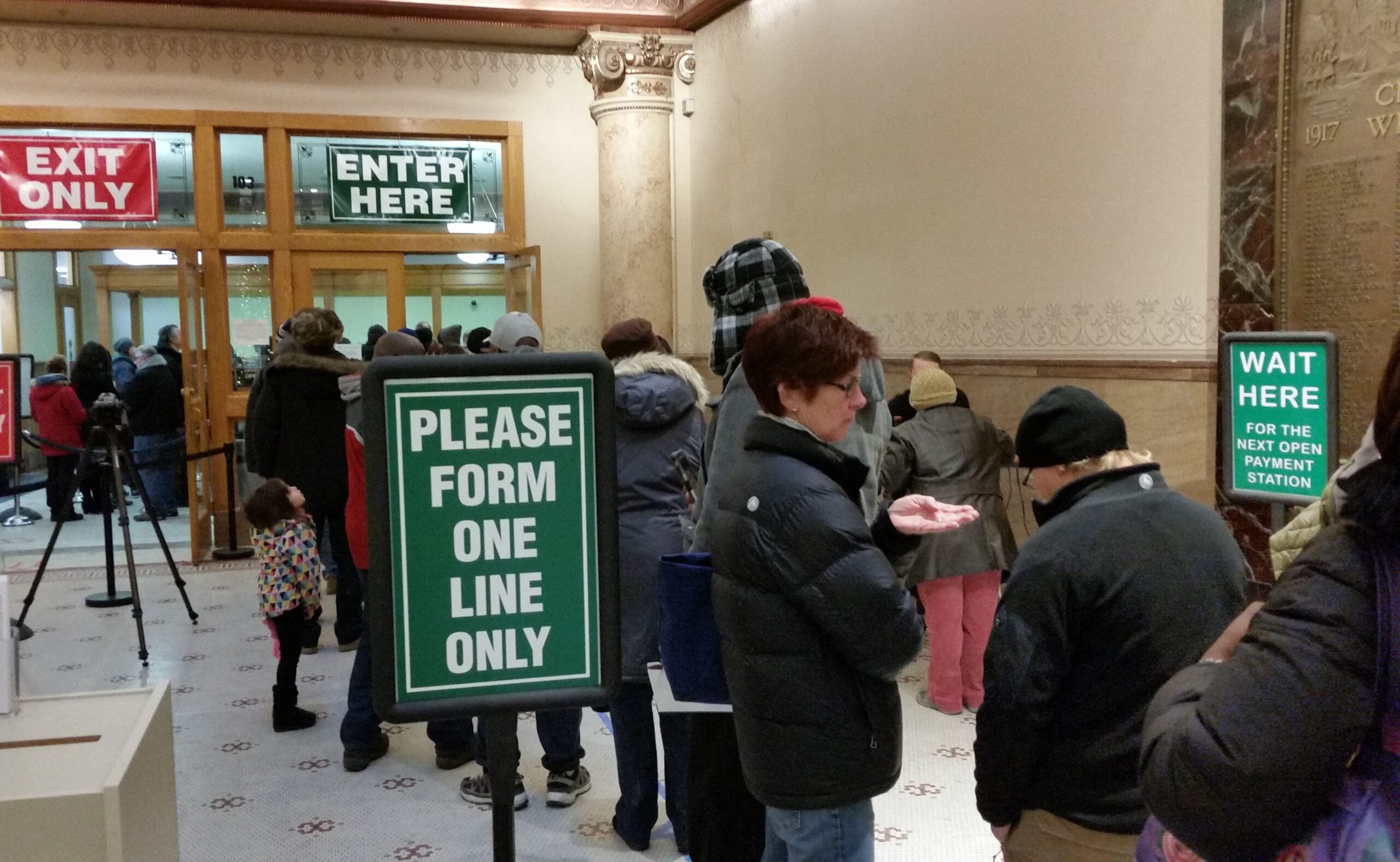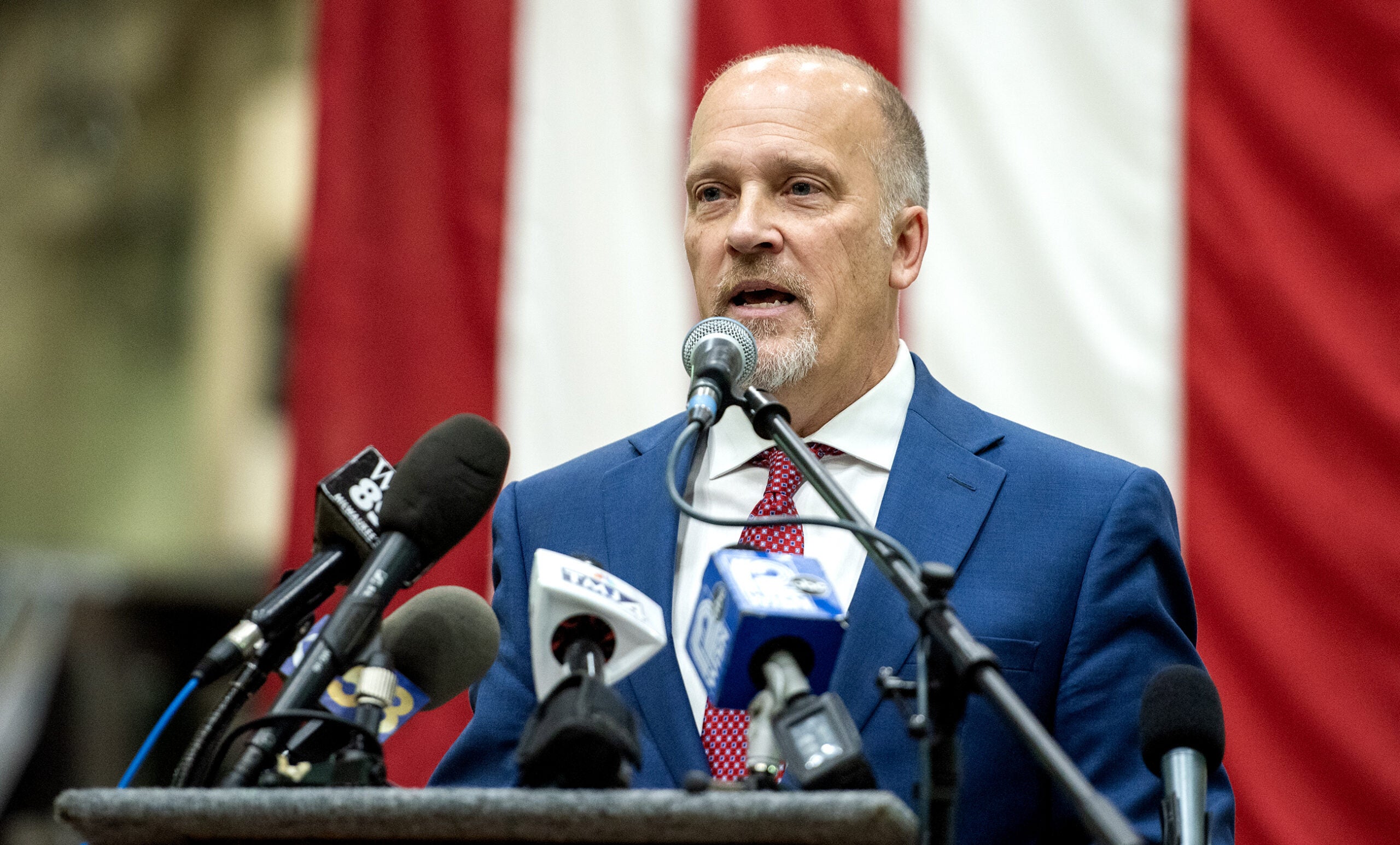2024 was a big year for Wisconsin politics. This upcoming year is going to be no different.
On the docket so far is an upcoming Wisconsin Supreme Court open seat and deciding the next state biennial budget.
WPR politics reporters Rich Kremer and Anya van Wagtendonk joined “Morning Edition” host Alex Crowe to break down the stories they’re watching in 2025.
News with a little more humanity
WPR’s “Wisconsin Today” newsletter keeps you connected to the state you love without feeling overwhelmed. No paywall. No agenda. No corporate filter.
This interview was edited for clarity and brevity.
Alex Crowe: The state Supreme Court race that is coming up in Wisconsin. That will be held during this spring election during April. Rich, can you tell us a little bit about what’s going on here?
Rich Kremer: Well, let me just say, if you thought election season was over, you were sadly mistaken. In less than four months, Wisconsinites will be going to the poll for a pretty significant battle over ideological control of the state Supreme Court.
The election will determine who will replace retiring liberal justice Ann Walsh Bradley, who’s been on the court since 1995. The two candidates we have, so far, are former Republican Attorney General Brad Schimel, who is now a Waukesha County Circuit Court judge, and Dane County Judge Susan Crawford, who has worked as an attorney for Democrats and Planned Parenthood.
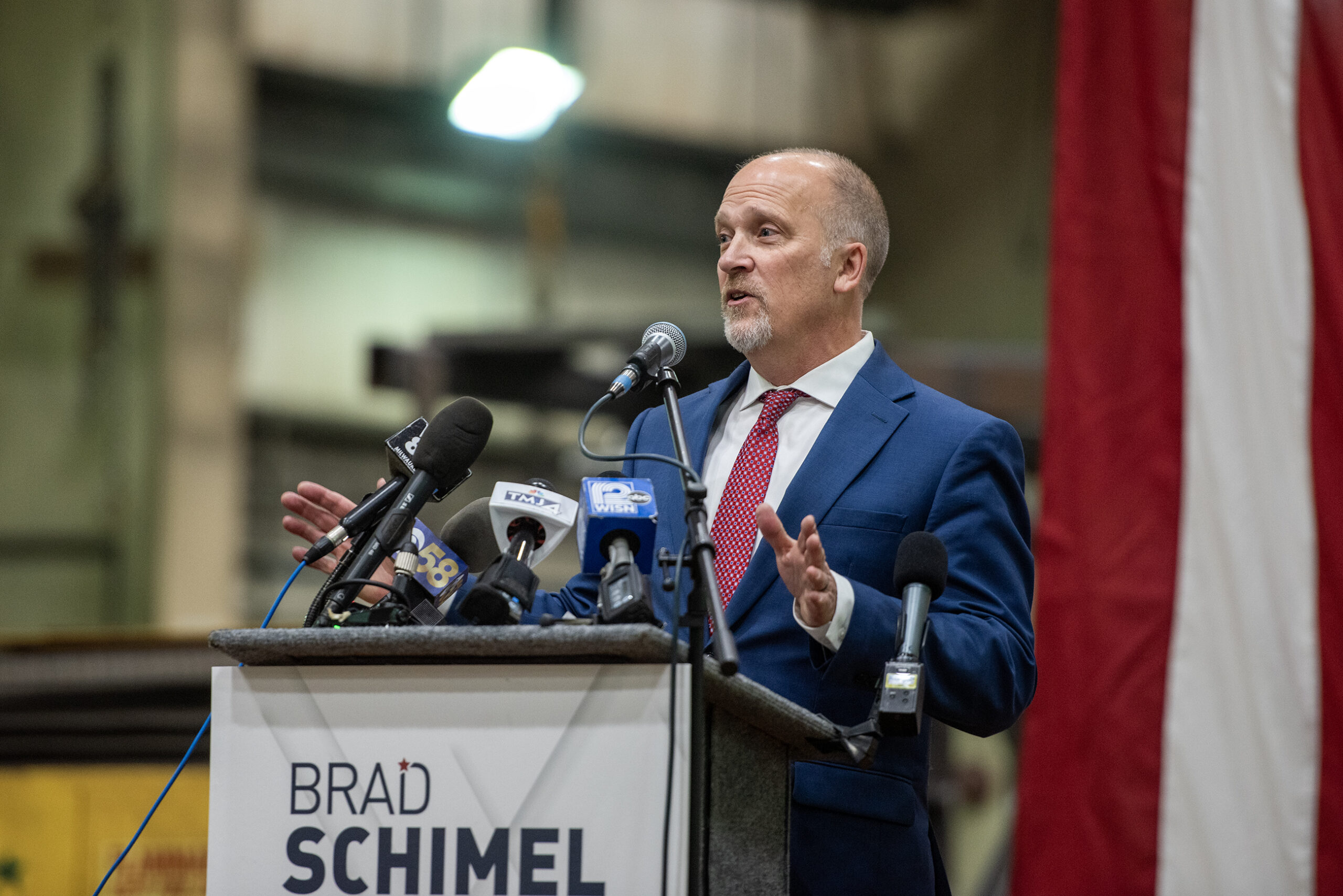
This election will be held in April 2025 as you mentioned, but Schimel has been campaigning since November 2023. On the stump he has accused liberal justices on the court of going rogue by focusing more on politics than the law.
Crawford entered the race in June, and she framed her campaign as a chance to preserve the current court majority. She says will focus on following the law and protecting constitutional rights.
AC: The state’s high court is going to hear a number of high-profile cases heading into 2025. Can you just give us a highlight of maybe a few of those cases you’re keeping an eye on?
RK: There’s a case about whether a law passed in 1849 bans most abortions in Wisconsin. That’s probably the highest-profile case.
Another one will determine whether a GOP-controlled legislative committee violated the state constitution by blocking an agency rule that would have banned conversion therapy. The caveat is that the conversion therapy ban is currently in place, but this committee has essentially temporarily barred that ban.
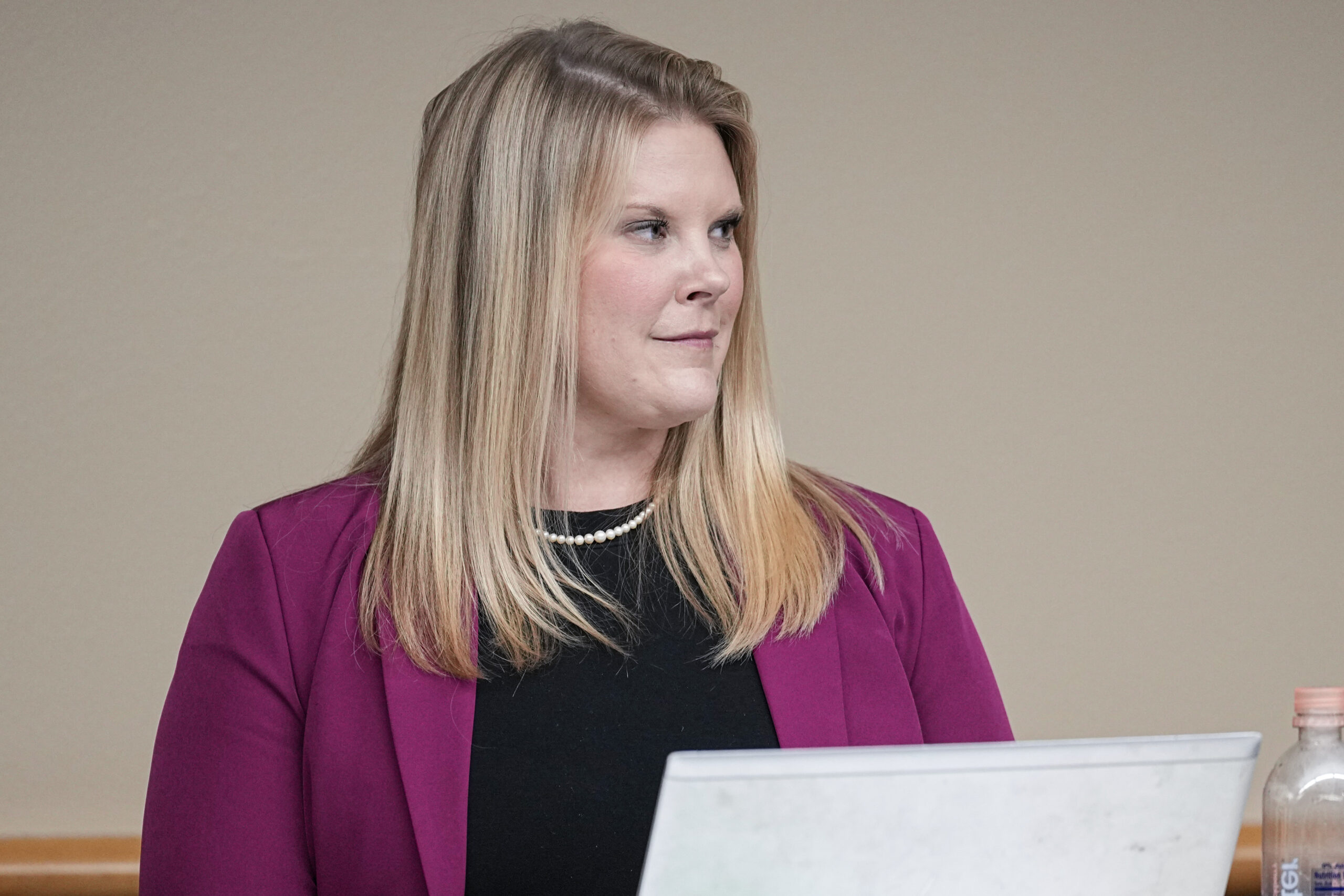
There’s also a case about whether Wisconsin’s top elections official, Meagan Wolfe, should be allowed to hold over in her position amid Republican efforts to fire her.
And whether a line-item budget veto that increased school funding for 400 years violates the state constitution.
AC: 2025 is also when state lawmakers need to put together the next biennial budget here in Wisconsin. This time has always been notoriously difficult in the state, and there’s always a lot of going back and forth between Republicans and Democrats. Anya, do we have any reason to believe this time around is going to be any different?
Anya van Wagtendonk: The budget is one of the biggest pieces of legislation that the Legislature works on. It’s essentially a document that states what the funding priorities are for the state of Wisconsin over the next two years.
And there are a couple of reasons for those partisan fights that you mentioned. It usually boils down to philosophical differences about the size of government and whether to spend the state surplus. And there are some policies that Republicans and Democrats are just never going to see eye to eye on. For example, Evers has always proposed legalizing marijuana in his budget — recreational and medicinal — and Republican leadership has made clear that they will never support full legalization.
It’ll most likely get cut, and then we’ll get a final document that Evers will then need to sign. But he also has the power to partially veto the budget, so he can remove things that the Joint Finance Committee includes.
We’ve already heard of one prospective veto, which is that Evers says he won’t support a return to the office mandate for government workers.
AC: Anya, something that’s been on my mind a lot lately has been the topic of gun legislation, especially after the shooting at Abundant Life Christian School in Madison. Is there something that’s being talked about right now in Wisconsin?
AVW: Democrats have been a bit more vocal about legislation. U.S. Rep. Mark Pocan, D-Madison, had a really full-throated call for national legislation.
He said it was “time for my Republican colleagues to grow a backbone and put our children above the gun lobby.” Dane County Executive, Melissa Agard, who used to be in the state Legislature, also called for a few state-level policies and also called for national action.
There have been some gun-related proposals in the past that have had bipartisan support, and those have had to do with safe storage, and particularly the overlap between gun access and mental health. And so I’ll be really interested to see how that conversation plays out.
Wisconsin Public Radio, © Copyright 2025, Board of Regents of the University of Wisconsin System and Wisconsin Educational Communications Board.

